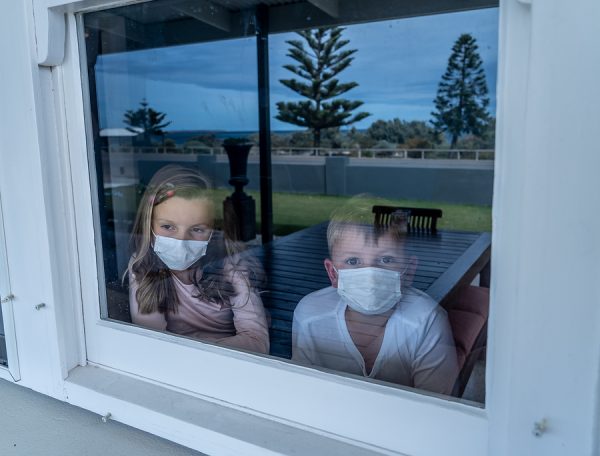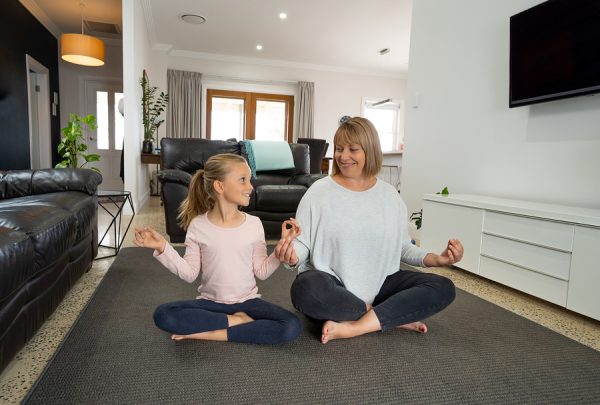What feels like the longest two months many of us have ever experienced is gradually coming to end. The peak of the Coronavirus outbreak in the UK has passed. Cases in hospitals are coming down, as is the daily death rate. Slowly, the government is looking to relax restrictions and it’s hoped that, whilst things certainly won’t be returning to pre 2020 levels of normality any time soon, our old familiar routines may now be within reach.
Throughout the lockdown period the focus has, quite rightly, been on protecting the physical health of the nation and the capacity of the NHS to cope. Sadly, this has been to detriment of the very serious issue of mental health. In recent years, we have seen a much needed acceptance of mental health issues and the recognition that mental well-being is equally important to physical well-being, with the two very much linked together. Unfortunately, mental health has largely been put on the back-burner during the lockdown, and in some sections of society, there has been an unwelcome return to the idea that sufferers should simply “pull themselves together” and “get on with it”.
Children’s Mental Health & Coronavirus

The side-lining of mental health during the Coronavirus pandemic is particularly apparent amongst children who have borne much of the burden of the lockdown. Schools were closed suddenly at the end of March, as were playgrounds, activity centres, clubs, swimming pools and other resources used by children. Children were no longer able to meet with their friends or even hug their grandparents. Their lives were inexplicably turned upside down overnight and the emotional trauma that this could bring was largely ignored. Indeed, NHS mental health services, that were already stretched beyond reason before the pandemic, were suspended or restricted and, earlier this month, the Guardian reported that one in four children had been unable to access support that they had previously been receiving before the pandemic.
A global study by Save The Children found that one in four children in countries affected by Coronavirus lockdown and restrictions were suffering from anxiety, with many of those children at risk of “lasting psychological distress, including depression.” It is clear that lockdown, whilst essential for saving lives, will come with a heavy bill in the form of poor mental health and children will have to pay a significant share of this.
Although we are now entering a new phase, life for children will not return to normal for a long period of time. Some schools are reopening, but that is only for some year groups and it is expected that school classrooms will look very different for those returning children, with resources removed, smaller bubbles, staggered playtimes, and social distancing measures enforced. Playgrounds remain closed and social distancing rules still apply, limiting the possibility of play dates for children. The longer these measures go on, the longer it is likely that children will experience significant mental distress, which is why it is more important than ever that parents take steps to support the mental well being of their children.
Supporting Your Child’s Mental Health During Coronavirus

Remember that these are unprecedented times and that it is normal for children to experience mental health difficulties as a result, whether it be general anxiety, low mood, or depression. For some children who were already dealing with mental health issues, the pandemic may have exacerbated these further. You can support your child in a number of ways.
1. Talk, Talk & Keep Talking
So often as parents we forget to actually “talk” to our child. We speak to them, of course. We tell them when it’s time for dinner. We ask them to tidy up. During lockdown we go through school work with them and check their spellings or understanding of maths. But unless something happens to alert us to our child’s feelings and emotions (such as an outburst or misbehaviour), we can easily forget to check in on them to see how they are feeling.
Don’t wait for the next outburst or act of defiance to talk to your child. Instead, take time out each day away from distractions, such as home-school, work and screen time, to check in with your child to see how they are coping. Talk to them about how they are feeling. Ask them if there is anything worrying them and give them the opportunity to voice any worries without judgement. Mealtimes are a great moment for this kind of conversation because it’s generally when the entire family get together without phones and other distractions and it’s when we can sit down and relax together. Use this time to reassure your child about any worries they may have and make it clear to them that you are always there to listen if needed.
2. Keep A Routine
Humans love a routine. It helps them to feel safe. They know what’s coming and there are no unexpected surprises to throw a spanner in the works. Children especially love a routine because it helps them to make sense of this often crazy world that we live in.
You have probably seen colour coded timetables on social media that some parents have devised for their children during lockdown. There really is no need for something quite so elaborate, but keeping to a general routine will help ease your child’s anxiety. You don’t have to be rigid with it. For example, you could say that you will always start the day with some exercise, but that exercise could vary each day depending on how you all feel. Afterall, no one wants to be doing 50 push-ups first thing in the morning if their mood is particularly low, whereas a gentle walk would probably help lift that mood.
Set a time for schoolwork to be completed but try not to worry if your child is unable to complete it that day. It’s not the end of the world if their knowledge of fronted adverbials slips for a few months. Set an allocated time for screen time, but again, be generous if the mood requires it. Essentially, what we are saying here is that setting a routine is important, but it’s equally important to be prepared to adapt that routine if required for mental health reasons.
As part of your routine, have a set time each week to look forward to. It could be pizza and movie night, or a family baking session – whatever works for your family and situation. It helps to mark out the weeks when the days seem to blur into one.
3. Get Outside
Now that lockdown restrictions have been relaxed and the warmer weather has arrived, we can all spend plenty of time outdoors, as long as we keep to social distancing rules. It has been scientifically proven that spending time outside boosts mental health and what’s more, during the summer months, our bodies are able to absorb Vitamin D from the sun. Vitamin D is essential for our children to grow, which is why it’s pretty important.
In addition, recent research into the Coronavirus outbreak has suggested there may be a link between vitamin D deficiencies and a more severe form of the disease. Further research is needed, but in the meantime, spending time out in the sun will certainly do no harm (providing you use sun cream, of course!).
4. Unleash Their Creativity
Children often use creativity as a way of expressing their feelings, so try and give them as many opportunities as possible to get creative. It might be drawing, junk modelling, making a movie, performing a puppet show, or anything else that gets those creative juices flowing. If you can, join in with your child during these sessions and this will provide more opportunities for your child to talk to you about their feelings.
5. Try Relaxation Activities
Your child may be feeling anxious or stressed due to the change in their routine and any snippets they may have overheard on the news but enabling them to feel relaxed can help with this. You could try some yoga videos with your child, with some YouTube channels hosting sessions suitable for parents and children together. Alternatively, try a listening activity in the garden. Ask your child to listen carefully to everything around them and try and list ten different things they can hear. This is a form of mindfulness that gets your child to focus on the external world instead of their internal thoughts.
Save The Children have a brilliant collection of relaxation activities that are ideal for younger children, whilst older children may be interested in trying deep breathing activities.
6. Seek Help If Required
If your child is displaying signs of significant mental distress, then don’t delay in seeking help. Most GP surgeries are now offering telephone / video appointments, so there is no risk of infection. Your child’s GP will be able to direct you to other forms of support and if necessary, make a referral to CAMHS.
Looking After Your Own Mental Health As A Parent

Of course, it’s not just children who are struggling with mental health during this pandemic. Adults are also finding the burden of lockdown increasingly difficult. Some people are worried about their jobs and financial prospects. Some are shielding and haven’t left the house in weeks with many living alone without another being to talk to. Some people have experienced a worsening of existing mental health problems due to the panic, whilst services have been cut at the same time. Many parents are finding it almost impossible to balance home-schooling and working from home and those with high needs children are faced with no respite.
Looking after your own mental health is just as important as looking after the mental health of your child. After all, if you are experiencing low mood, stress, or anxiety, then it’s very likely that your child will pick up on that. Many of the steps we mention above for children will work just as well, if not better, for adults. Regular exercise, talking to loved ones about how you feel, and keeping a routine are particularly important.
In addition, it’s important to realise that we all have limits and you can’t always be the best performing parent. Sometimes it is necessary to be selfish and say, “I’m just going to leave the kids with their tablets / cartoon shows and read a book” (young children obviously need to be supervised, but you can still relax alongside them). We all need downtime to recharge our batteries, especially when those batteries are being constantly drained by world events.
If you have a partner, consider making an arrangement where one of you looks after the kids for a few hours whilst the other one has some childfree time, either by going out for exercise or to sit in the park, or simply just taking a nap in your bedroom.
Finally, if you feel overwhelmed and unable to manage, it’s just as important for you to seek professional help. There is no shame in reaching out to your GP, who will be very understanding about your situation. It’s ok not to be OK.




